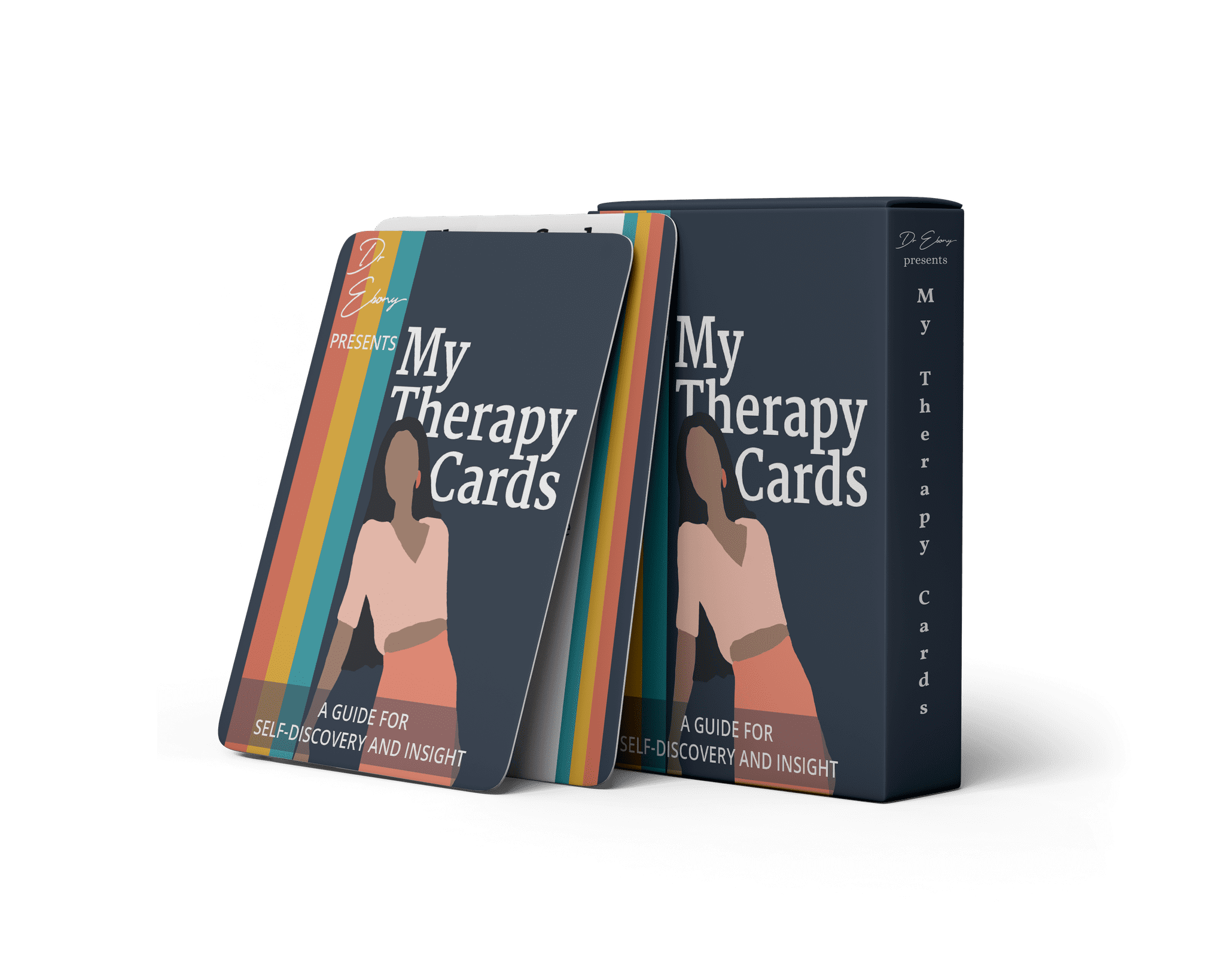
Barriers such as cost, accessibility, and the lack of culturally competent providers can prevent people from marginalized groups from receiving the mental health care they deserve. Ebony Butler, PhD, psychologist, and creator of My Therapy Cards, is aware of these barriers and wanted to do more to help people receive quality mental health care. After working with a client who told her she was at the time the only Black psychologist practicing in Austin, TX, Dr. Butler knew there was a demand and launched her own private practice. Initially, she thought she would take on a handful of clients, but after three months, she had a full private practice.
Aware of the fact that she couldn’t take on every prospective client, that there was a need, and that access and cost were an issue, she told POPSUGAR, “I started to think, ‘How can I begin to bridge the gap with a lot of things that I’m seeing?'” According to Dr. Butler, the stigma surrounding mental health in Black and brown communities keeps those groups from seeking mental health support, and then, when people from the communities do want to seek help, “that help is not even there,” she explained. She also pondered how she could help mitigate the cost and accessibility aspect with therapy. To address the barriers she was observing, Dr. Butler said, “I thought the cards could do just that.”
Dr. Butler intentionally named the deck My Therapy Cards because “I want us to begin to get comfortable with saying the word ‘therapy,'” she said. The deck is $57 and features questions she often asks her clients in sessions. These questions allow people to do self-discovery work, as Dr. Butler describes it, which can help someone decide if they want to pursue therapy at some point and provides them with an idea of what to expect in a session. Additionally, the cards are great for anyone waiting for a provider to have availability and for those who can’t afford therapy; it’s still “quality-level work that [goes] deeper than just self-care and the affirmation cards.”
The framework for doing the work, which she calls the process by which we go about creating change in our lives, focuses on three main areas Dr. Butler believes keep people stuck if they aren’t properly addressed. The first is mindset, specifically paying attention to where our mindset is and the things that are getting in our way, such as mental blocks, she explained. The second area is habits. “What habits are we engaging in that may be rendering us ineffective?” she said. The third area is triggers, to which the cards focus on how we’re coping with the things that trigger us, she explained.
There are 52 cards in the deck, which are separated into these three categories (mindset, habits, and triggers) with 12 cards per category. There’s also an emotion wheel that helps people create and develop language around identifying their emotions. In addition to the emotion wheel, the deck includes a glossary “so that we’re all on the same page about what certain words mean.”
How you work through the deck is up to you — there’s no right or wrong way to go through the deck. “Do what feels right for you,” Dr. Butler said. You can work through the deck alone, with your partner, or with friends. Since therapy is typically once a week, she recommends going through one or two cards a week “so that you can really sit with the things that are coming up for you.” No matter how you choose to work through the deck, Dr. Butler advised “allowing yourself to really do the work and not rush through it.”
If you’re wondering how to track your emotions and progress, Dr. Butler said, “You have to do what feels right for you. If you’re not a journal person and you’re thinking you have to do this with a journal, you’re going to be less apt to pick up the cards and work through them.” If you’re someone who likes to talk things out, she recommends recording your thoughts with a recorder or via a voice app or talking things out with someone. “There’s no right or wrong way [to track your progress and thoughts]. You have to go with what’s going to provide you the most amount of likelihood to engage with the cards,” she emphasized.
My Therapy Cards can be used by anyone (although she does recommend using discretion if providing them to a teen) and are providing those who don’t have access to traditional therapy with tools to better understand themselves and their emotions and improve their mental health and well-being.
